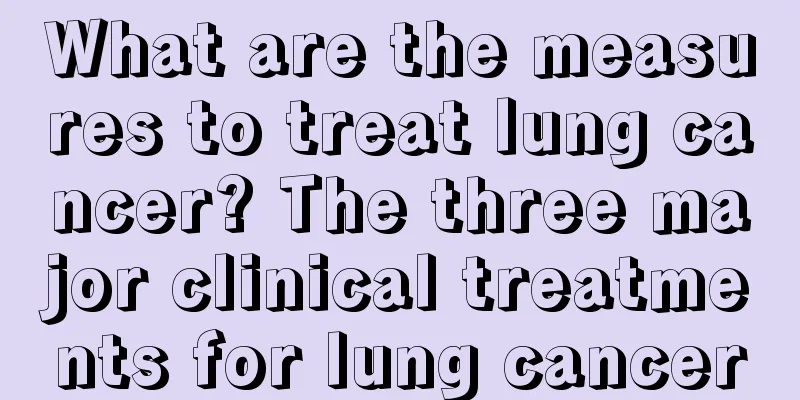What medicine to take for myocardial infarction

|
Speaking of myocardial infarction, I believe everyone knows its danger. Once an emergency occurs and there is no rescue, the mildest case is hemiplegia and the worst case is life in danger. In the past, most people believed that this was a disease only for the elderly because of the aging of their bodies and blood vessels. In fact, this is not the case. In recent years, the high-risk population for myocardial infarction has also tended to be younger and younger, so this kind of cardiovascular and cerebrovascular disease must not be taken lightly. If you are diagnosed with myocardial infarction, you must not be lucky and think that you feel good and it doesn't matter if you don't take medicine. In fact, this disease requires long-term medication to maintain. You must follow the doctor's advice and take medicine on time to control the condition. So let's talk about what medicine to take for myocardial infarction, which can be divided into four categories: Category I: Antiplatelet Aggregation Drugs These drugs are used to prevent blood clots from forming. Acute myocardial infarction caused by coronary heart disease is caused by the formation of blood clots in the coronary arteries that block the coronary arteries. The purpose of long-term use of this drug is to prevent recurrence of thrombosis. Representative drugs of this type include enteric-coated aspirin, clopidogrel, and ticagrelor. Currently, most guidelines recommend the use of aspirin combined with clopidogrel or ticagrelor for 1 year after acute myocardial infarction, followed by long-term use of aspirin, regardless of whether a coronary stent is implanted. Category 2: Cholesterol-lowering drugs These drugs are used to lower cholesterol. Increased cholesterol levels can easily cause coronary artery stenosis, and worsening stenosis can further cause blood vessel occlusion, leading to thrombosis and myocardial infarction. Therefore, this type of medicine mainly treats the root cause of coronary heart disease. Representative drugs of this type are atorvastatin and rosuvastatin. A warm reminder to everyone that patients with coronary heart disease should take this type of medication even if their cholesterol is not high. Category III: Beta-blockers The pharmacological action of this type of drug is to reduce myocardial oxygen consumption, resist arrhythmias, improve ventricular remodeling after myocardial infarction and improve cardiac function by slowing down the heart rate. The most commonly used drug of this type in clinical practice is Betaloc, but it is recommended that everyone should use Betaloc sustained-release tablets - Metoprolol succinate sustained-release tablets. This medicine should be used with caution in the following three situations: patients with combined bronchial asthma, blood pressure lower than 90/60 mmHg, and heart rate lower than 60 beats/minute. Category 4: ACEI or ARB The Chinese name of ACE1 drugs is angiotensin converting enzyme inhibitors. Studies have clearly shown that this type of drug helps improve myocardial remodeling, reduce mortality and heart failure. ACE1 drugs include captopril, enalapril, fosinopril, benazepril, ramipril, perindopril, etc. |
<<: What are some tips to make your body sweat
>>: What causes red, swollen and painful lips?
Recommend
Tips for sleeping due to itchy throat
The situation of itchy throat and insomnia is ver...
What should I do if my stomach is bloated but I can't poop?
As we all know, if a person's body is in an u...
One acupuncture point can help you deal with motion sickness and vomiting
Many people suffer from motion sickness, which is...
Pathological causes of prostate cancer
Male friends should pay attention to their health...
Chinese herbal medicine for preventing liver cancer
In the treatment of liver cancer, traditional Chi...
How long can a person with lymphoma usually live
The survival time of lymphoma patients varies fro...
Correct posture for brushing teeth
Although we brush our teeth every day, many peopl...
The efficacy and function of iron stone solution
Dendrobium candidum is not only edible and can be...
Why is coughing up blood bright red
Coughing up blood is an abnormal condition, which...
What is the reason for middle-aged people to lose teeth
As we all know, the importance of teeth to the hu...
The advantages and disadvantages of using a silver comb
The benefits of using a silver comb are mostly th...
Introduction to the correct steps of washing your hair with ginger water
Ginger is very common. You can use it according t...
What are the functions of the belt meridian
Many people may feel unfamiliar with the Dai Mai,...
The effects of various aromatherapy
With the continuous improvement of living standar...
What shoes are good to wear in the gym
Regular physical exercise can make our bodies hea...









